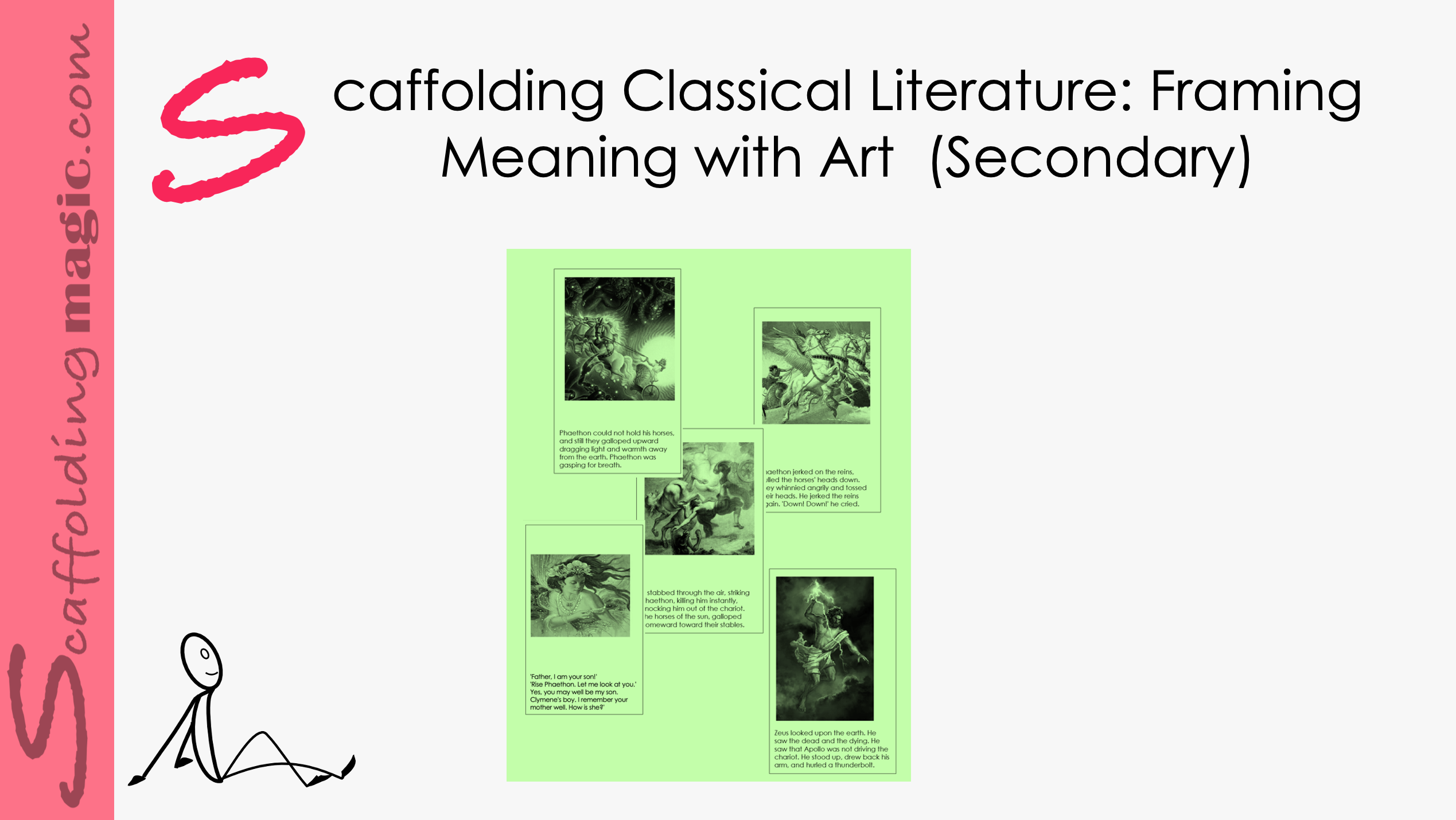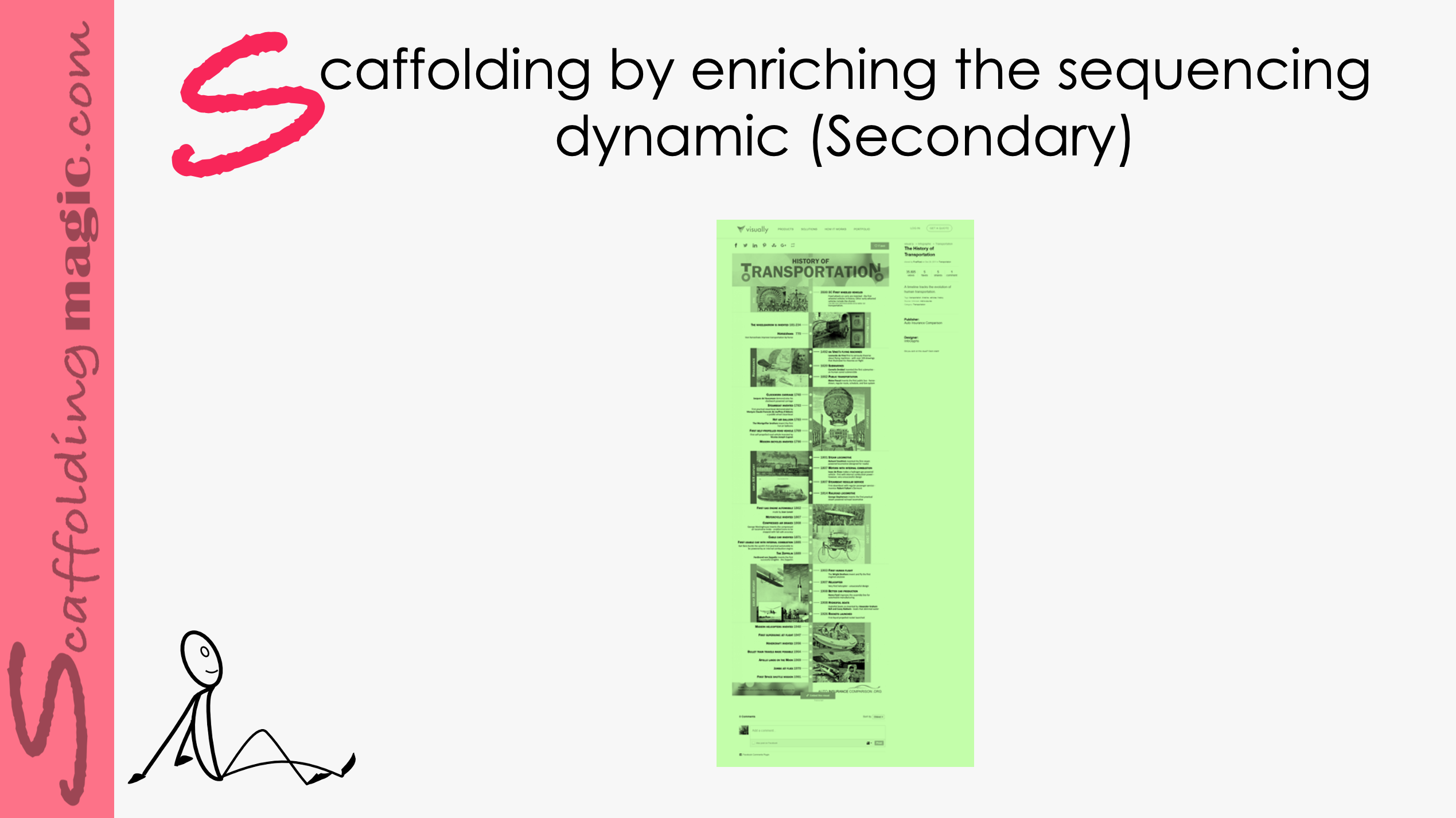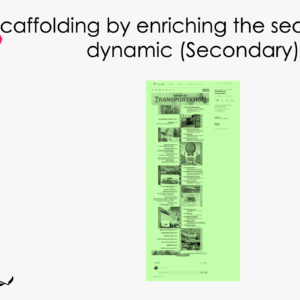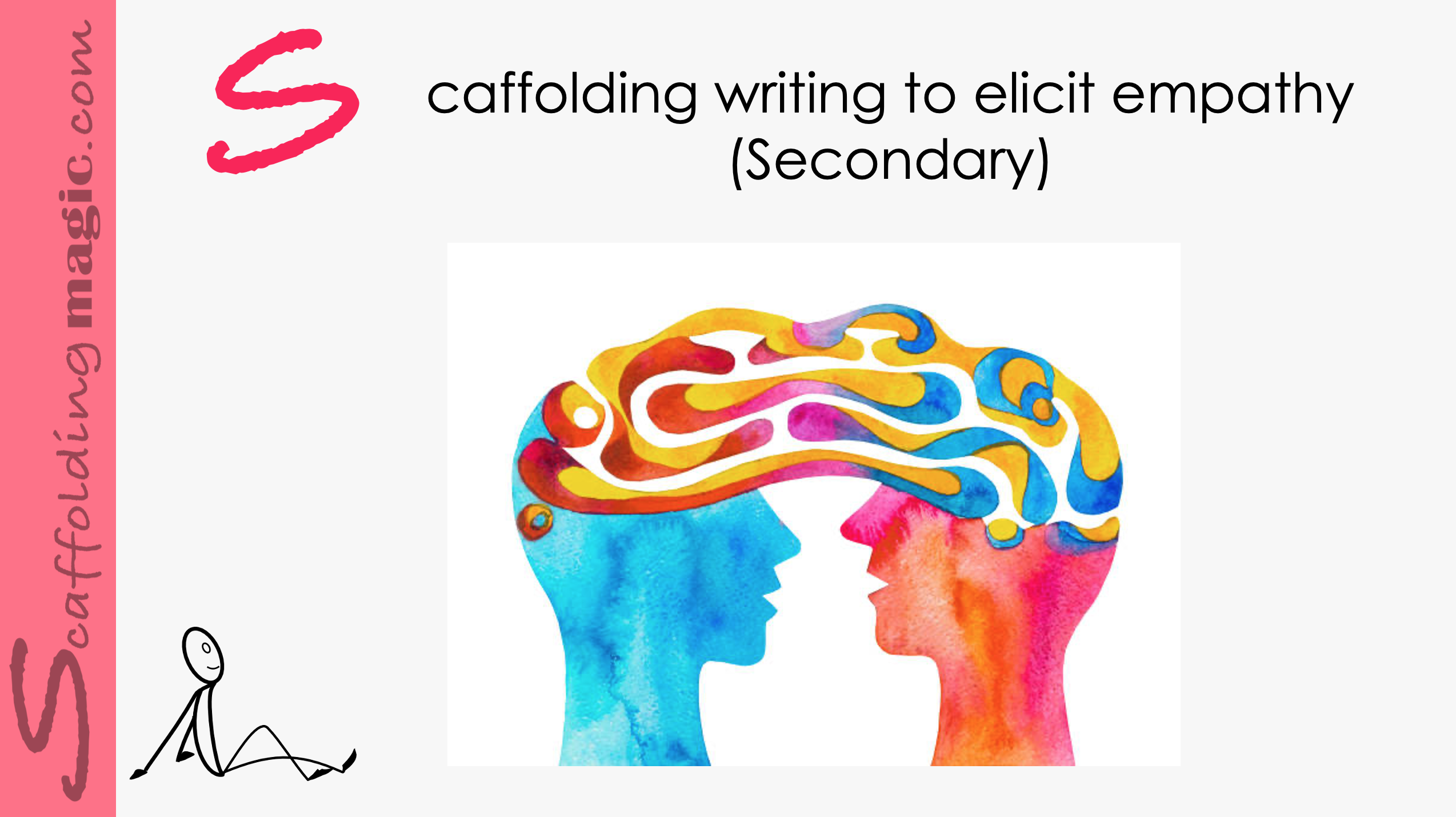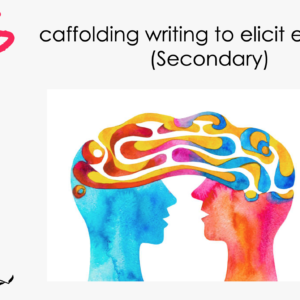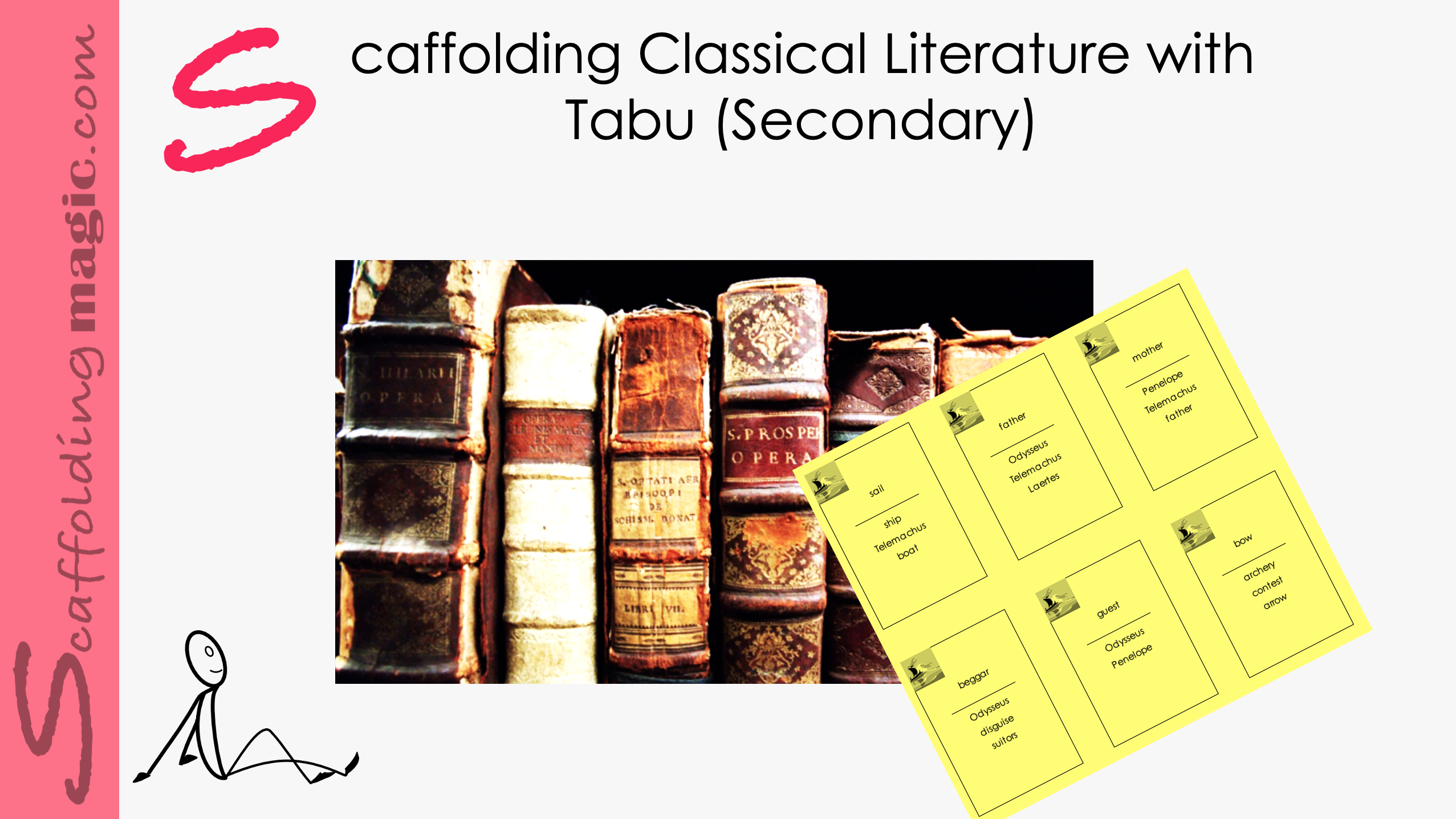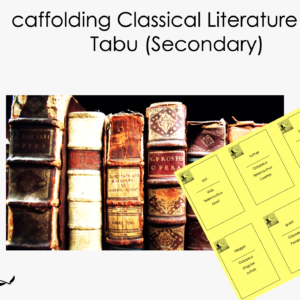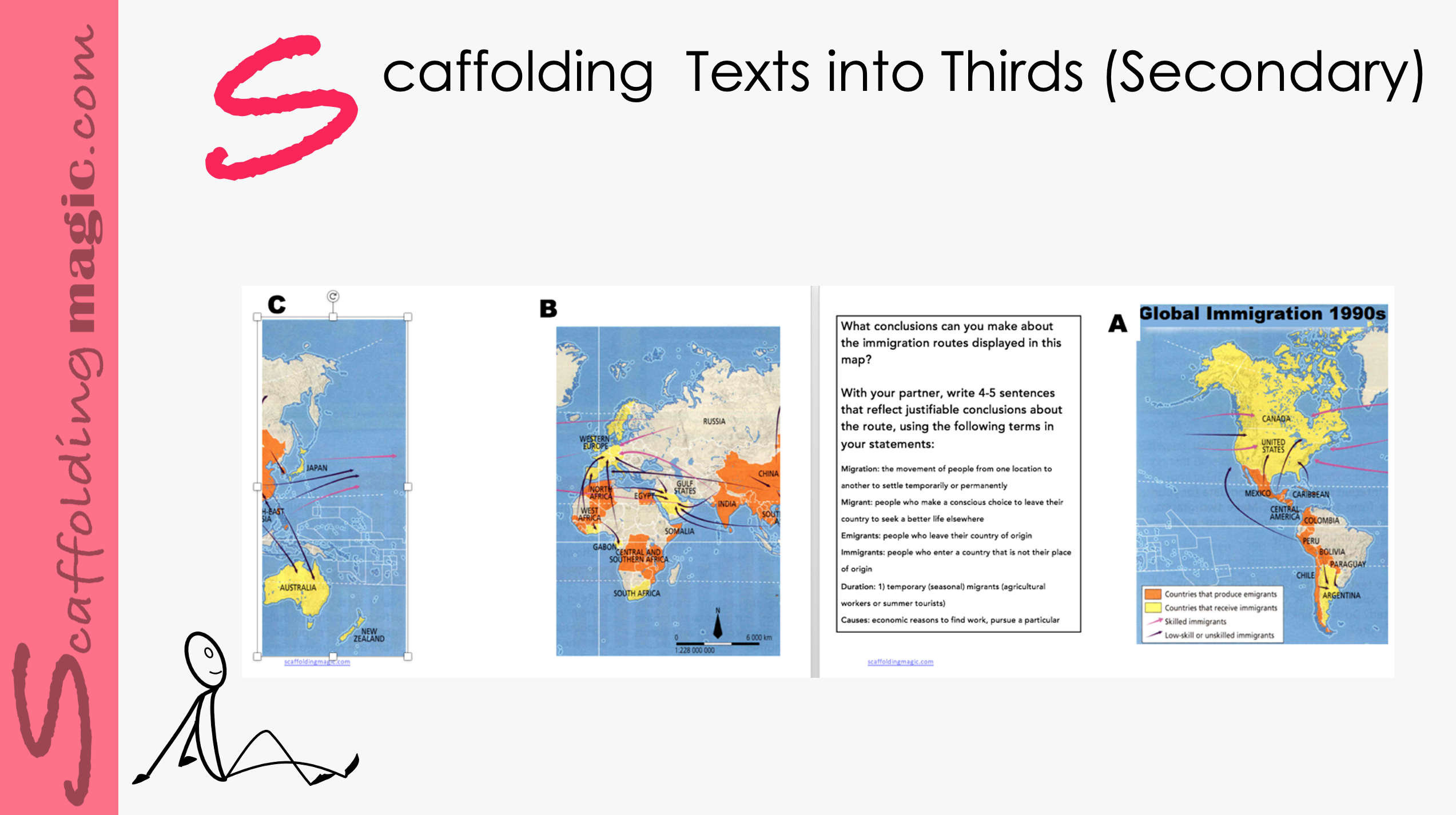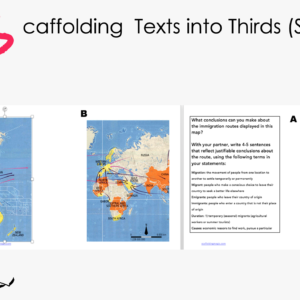Students are given artistic renditions of the story by documented artists with captions underneath in authentic language. They put the images in order according to what makes sense to them with regard to images and language. In the best practices of the Ethic of Excellence, in groups, they then exchange their artwork and analyse each other’s renditions.
Scaffolding Activity for Classic Literature 2: Framing Meaning with Art
$5.00
Students are given artistic renditions of the story by documented artists with captions underneath in authentic language. They put the images in order according to what makes sense to them with regard to images and language. In the best practices of the Ethic of Excellence, in groups, they then exchange their artwork and analyse each other’s renditions.
Related products
-
Secondary ScaffoldsQuick View
Scaffolding by Enriching the Sequencing Dynamic (Secondary)
$5.00 Add to cartRated 0 out of 5 -
Secondary ScaffoldsQuick View
Scaffolding Writing to Elicit Empathy (Secondary)
$5.00 Add to cartRated 0 out of 5 - Quick View
- Quick View
Scaffolding by Enriching the Sequencing Dynamic (Secondary)
Sequencing is a concept that needs to be repeated throughout the education process. We need to intentionally give our students the opportunities to be able to recognise and express sequences, and we need to provide the phrases they can use to clarify the ordering of events. It might be motivating to know that studies show that students are able to recall information more accurately if they’ve been schooled in sequencing.
Sequencing is a concept that needs to be repeated throughout the education process. We need to intentionally give our students the opportunities to be able to recognise and express sequences, and we need to provide the phrases they can use to clarify the ordering of events. It might be motivating to know that studies show that students are able to recall information more accurately if they´ve been schooled in sequencing.
Scaffolding Writing to Elicit Empathy (Secondary)
Writing is one of the four cornerstone skills of every inclusive educational curriculum. It helps us form our thoughts into coherent verses and communicate over distance and time. It is a skill usually approached as a way of appeasing bands for standardised exams, but, in fact, is the perfect tool to foster the development and expression of empathy.
Writing is one of the four cornerstone skills of every inclusive educational curriculum. It helps us form our thoughts into coherent verses and communicate over distance and time. It is a skill usually approached as a way of appeasing bands for standardised exams, but, in fact, is the perfect tool to foster the development and expression of empathy.
Scaffolding Classical Literature with Tabu
Many ESL teachers will questions the importance of teaching and using classic literature in their classes. We probably all agree that it is not easy to teach in its authentic form as it demands a high level of language proficiency and maturity for any student, and especially students those whose home language is different from that of the class text.
Nevertheless, through varied techniques, the reading of authentic classic literature is an incredibly enriching experience (although your students may not appreciate or admit this until years later!). Gamify the learning and you have students begging for more!!!
Many ESL teachers will questions the importance of teaching and using classic literature in their classes. We probably all agree that it is not easy to teach in its authentic form as it demands a high level of language proficiency and maturity for any student, and especially students those whose home language is different from that of the class text.
Nevertheless, through varied techniques, the reading of authentic classic literature is an incredibly enriching experience (although your students may not appreciate or admit this until years later!). Gamify the learning and you have students begging for more!!!
Scaffolding Texts in Thirds (Secondary)
This scaffold presents one technique you can use to combat this human tendency of laziness – of relying on memory instead of working actively to further knowledge. We use here a social science lesson on global migration, and you’ll see how you can adapt it to any lesson you’re about to begin.
This scaffold presents one technique you can use to combat this human tendency of laziness – of relying on memory instead of working actively to further knowledge. We use here a social science lesson on global migration, and you’ll see how you can adapt it to any lesson you’re about to begin.
janice added this to see

